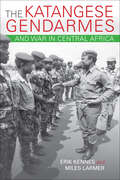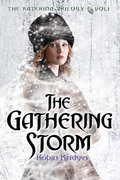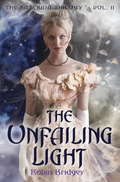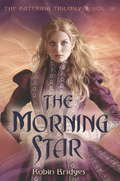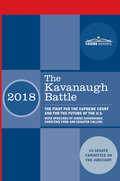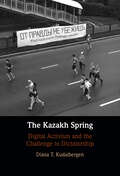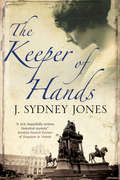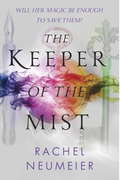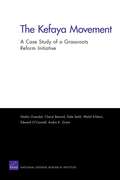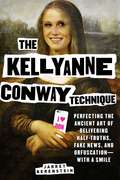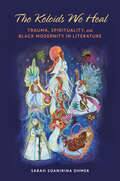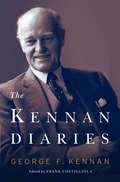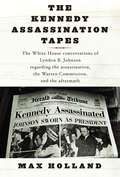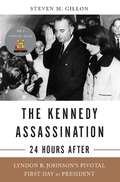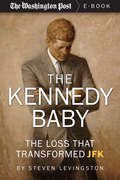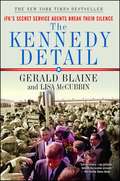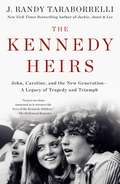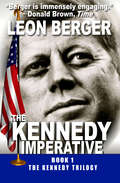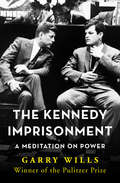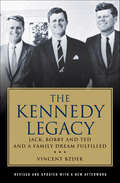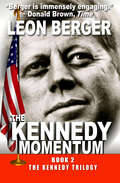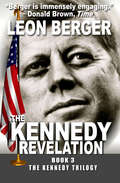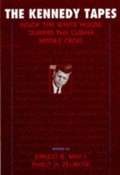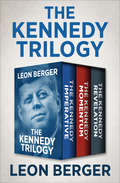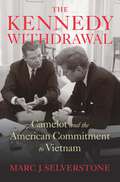- Table View
- List View
The Katangese Gendarmes and War in Central Africa: Fighting Their Way Home
by Erik Kennes Miles LarmerA history of the 1960s unrecognized state’s army and their role in Central Africa’s political and military conflicts.Erik Kennes and Miles Larmer provide a history of the Katangese gendarmes and their largely undocumented role in many of the most important political and military conflicts in Central Africa. Katanga, located in today’s Democratic Republic of Congo, seceded in 1960 as Congo achieved independence, and the gendarmes fought as the unrecognized state’s army during the Congo crisis. Kennes and Larmer explain how the ex-gendarmes, then exiled in Angola, struggled to maintain their national identity and return “home.” They take readers through the complex history of the Katangese and their engagement in regional conflicts and Africa’s Cold War. Kennes and Larmer show how the paths not taken at Africa’s independence persist in contemporary political and military movements and bring new understandings to the challenges that personal and collective identities pose to the relationship between African nation-states and their citizens and subjects.“A fascinating story which is tied to the colonial development of Katanga province, cold war politics in Central Africa, the crisis of the postcolonial state in the Congo, and the interregional politics in the Great Lakes area.” —Georges Nzongola-Ntalaja, University of North Carolina“A major contribution to our understanding of postcolonial politics in Africa more broadly and sheds light on the survival of militias over time and forms of subnationalism emerging from regional consciousness.” —M. Crawford Young, University of Wisconsin, Madison
The Katerina Trilogy, Vol. I: The Gathering Storm
by Robin BridgesSt. Petersburg, Russia, 1888. As she attends a whirl of glittering balls, royal debutante Katerina Alexandrovna, Duchess of Oldenburg, tries to hide a dark secret: she can raise the dead. No one knows. Not her family. Not the girls at her finishing school. Not the tsar or anyone in her aristocratic circle. Katerina considers her talent a curse, not a gift. But when she uses her special skill to protect a member of the Imperial Family, she finds herself caught in a web of intrigue. An evil presence is growing within Europe's royal bloodlines--and those aligned with the darkness threaten to topple the tsar. Suddenly Katerina's strength as a necromancer attracts attention from unwelcome sources . . . including two young men--George Alexandrovich, the tsar's standoffish middle son, who needs Katerina's help to safeguard Russia, even if he's repelled by her secret, and the dashing Prince Danilo, heir to the throne of Montenegro, to whom Katerina feels inexplicably drawn. The time has come for Katerina to embrace her power, but which side will she choose--and to whom will she give her heart? From the Hardcover edition.
The Katerina Trilogy, Vol. II: The Unfailing Light
by Robin BridgesHaving had no choice but to use her power has a necromancer to save Russia from dark forces, Katerina Alexandrovna, Duchess of Oldenburg, now wants to forget that she ever used her special powers. She's about to set off to pursue her lifelong dream of attending medical school when she discovers that Russia's arch nemesis--who she thought she'd destroyed--is still alive. So on imperial orders, Katerina remains at her old finishing school. She'll be safe there, because the empress has cast a potent spell to protect it against the vampires and revenants who are bent on toppling the tsar and using Katerina for their own gains. But to Katerina's horror, the spell unleashes a vengeful ghost within the school, a ghost more dangerous than any creature trying to get in.
The Katerina Trilogy, Vol. III: The Morning Star
by Robin BridgesLush and opulent, romantic and sinister, The Morning Star, Vol. III in the Katerina Trilogy, reimagines the lives of Russia's aristocracy in a fabulously intoxicating and page-turning fantasy.St. Petersburg, Russia, 1890Katerina Alexandrovna, Duchess of Oldenburg, wants to be known as a doctor, not a necromancer. But Tsar Alexander III forbids women to attend medical school; his interest in Katerina extends only to her ability to raise the dead. Twice now, Katerina has helped him by using her power to thwart the forces of darkness--vampires bent on resurrecting the lich tsar Konstantin Pavlovich so that he can take what he sees as his rightful place on the throne. Katerina thought she had bound Konstantin to the Greylands, the realm of the dead, but he has found a way out. Now he is searching for the Morning Star, a sword that will allow him to command a legion of supernatural warriors.Katerina must find the sword before Konstantin does--and she must travel to Egypt to do so. Along the way, she puts up with unwanted attention from her former fiancé, the nefarious Prince Danilo, and struggles with her feelings for her true love, George Alexandrovich. But with the looming threat from Konstantin, Katerina's focus remains on the sword. Russia's fate will be determined by whoever wields the Morning Star--and delivers the final blow.From the Hardcover edition.
The Kavanaugh Battle: The Fight for the Supreme Court and for the Future of the U.S. with speeches by Judge Kavanaugh, Christine Ford and Senator Collins
by U.S. Senate Committee on the Judiciary“For the Democratic Party, the Kavanaugh battle was the Little Bighorn, as seen from General Custer’s point of view.” –Pat Buchanan, political commentator, Oct. 2018 One of the most bitter confirmation debates in U.S history has recently ended, when Justice Kavanaugh was sworn in as Justice of the Supreme Court on October 8, 2018. While the U.S. is in the midst of the most contentious period in U.S. history since the Civil War, this was another battle in the fight for the Supreme Court and for the future of the U.S. In The Kavanaugh Battle you will find a collection of the crucial speeches made during the nomination process: - the remarks by Judge Kavanaugh to the Senate Judiciary Committee; - the statement by Christine Blasey Ford accusing Kavanaugh of sexual assault in their high school years - Judge Kavanaugh’s rebuttal - Republican Senator Susan Collins’ speech in the Senate announcing her decisive vote in favor of Judge Kavanaugh’s nomination and also - the findings of Rachel Mitchell, the sex crimes prosecutor hired by the Republican majority in the Senate Judiciary Committee Christine Ford declared she was “100%” certain that Kavanaugh assaulted her. Kavanaugh stated “…I swear today under oath before the Senate and the nation before my family and God, I am innocent of this charge.” Who to believe and what to believe? Rachel Mitchell, the sex crimes prosecutor concluded: “I do not think that a reasonable prosecutor would bring this case based on the evidence before the Committee.” In the end, Senator Susan Collins of Maine, laid out in her historical speech for the Senate the legal, political and historical reasons why she voted for this nomination: “I cannot abandon certain fundamental legal principles—about due process, the presumption of innocence, and fairness…” The result was a historic victory for the Republicans: they now have a reliable conservative majority on the Supreme Court for the first time since the New Deal. But the skirmishes in U.S. politics and society are not over yet. Time will tell what the real significance of the Kavanaugh battle will be. Students of U.S. politics and American history, academics, journalists, and anyone interested in current affairs, will find this collection of speeches fascinating reading.
The Kazakh Spring: Digital Activism and the Challenge to Dictatorship
by Diana T. KudaibergenHow can a de-institutionalised protest movement disrupt a solidified, repressive and extremely resilient authoritarian regime? Using the context of the Kazakh Spring protests (2019–ongoing), Diana T. Kudaibergen focuses on how the interplay between a repressive regime and democratisation struggles define and shape each other. Combining original interview data, digital ethnography and contentious politics studies, she argues that the new generation of activists, including Instagram political influencers and renowned public intellectuals, have been able to de-legitimise and counter one of the most resilient authoritarian regimes and inspire mass protests that none of the formalised opposition ever imagined possible in Kazakhstan. 'The Kazakh Spring' is the first book to detail the emergence of this political field of opportunities that allowed the possibility to rethink the political limits in Kazakhstan, essentially toppling the long-term dictator in unprecedented mass protests of the Bloody January 2022.
The Keeper of Hands (The Viennese Mysteries #4)
by J. Sydney JonesAn intriguing novel of suspense that &“recreates the beau monde of vintage Vienna with verisimilitude and consummate style&” (Kirkus Reviews). Vienna, 1901. With the police seemingly indifferent to the murder of a nineteen-year-old prostitute known as Mitzi, brothel-keeper Frau Mutzenbacher turns to lawyer Karl Werthen to find out what happened and bring her killer to justice. Yet the more he discovers about the mysterious Mitzi, with her secret past and impressive roster of clients, the more questions Werthen&’s investigation throws up. At the same time, Werthen undertakes a second commission: to find out who viciously assaulted playwright Arthur Schnitzler. Schnitzler believes his latest controversial play might have been the motive for the attack—but is there more to it than that? As he navigates the highs and lows of Viennese society in dogged pursuit of the truth, Werthen finds himself drawn into a conspiracy of espionage and affairs of state. &“Top-notch detecting and characterizations bolster the intricate plot&” (Publishers Weekly) of this superb fourth book in the Viennese Mystery series that is &“not as widely known as it ought to be, [but] well worth a look&” (Booklist).
The Keeper of the Mist
by Rachel NeumeierA lush new fantasy about finding the will to lead against all odds, perfect for fans of Shadow and Bone. Keri has been struggling to run her family bakery since her mother passed away. Now the father she barely knew--the Lord of Nimmira--has died, and ancient magic has decreed that she will take his place as the new Lady. The position has never been so dangerous: the mists that hide Nimmira from its vicious, land-hungry neighbors have failed, and Keri's people are visible to strangers for the first time since the mists were put in place generations ago. At the same time, three half-brothers will their own eyes on the crown make life within the House just as dangerous as the world outside. But Keri has three people to guide her: her mysterious Timekeeper, clever Bookkeeper, and steadfast Doorkeeper. Together they must find a way to repair the boundary before her neighbors realize just how vulnerable Nimmira is. With a spunky main character, lyrical storytelling, and hidden romance, The Keeper of the Mist is an engrossing story that is full of adventure.
The Kefaya Movement
by Cheryl Benard Edward O'Connell Dale Stahl Nadia Oweidat Walid KildaniKefaya was an indigenous movement for political reform organized in late2004 in opposition to the regime of Egyptian President Hosni Mubarak. Thisexamination of Kefaya's birth, accomplishments, and decline is based on ananalysis of the work of Egyptian scholars and Arabic-language media reports(including online and new media), as well as structured interviews withpersons associated with and observers of Kefaya and the Muslim Brotherhood.
The Kellyanne Conway Technique: Perfecting the Ancient Art of Delivering Half-Truths, Fake News, and Obfuscation—With a Smile
by Jarret BerensteinThe only thing Americans want to read more than Trump's tax returns.Constantly late to work? Caught cheating on your spouse again? Can't stop tweeting unhinged rants against your political enemies at three in the morning? Then The Kellyanne Conway Technique is the book you need.Preeminent spin expert and University of Phoenix Online alumnus, Jarret Berenstein, brings you the world's only comprehensive analysis of the tricks, distractions, and outright lies utilized daily by White House advisor Kellyanne Conway and distills her special brand of verbal jujitsu into a spin Bible for the common man.Filled with real transcripts from the esteemed spin-ster herself, The Kellyanne Conway Technique takes the invaluable lessons from her verbal boxing matches with the mainstream media and breaks down, step by step, the mental and rhetorical aerobatics she performs as the talking piece for a president who once wrestled Vince McMahon on the WWE. From alternative facts to the Bowling Green Massacre, take lessons from Kellyanne's greatest hits.The Kellyanne Conway Technique is the perfect guide to outsmarting the Jake Tappers in your own life: whether that is your boss, your husband, or a special hearing of the congressional oversight committee. Never again be held accountable for anything you do with a little help from Kellyanne!
The Keloids We Heal: Trauma, Spirituality, and Black Modernity in Literature (Transformations: Womanist studies)
by Sarah Soanirina OhmerWomen of colors and a literature written in corporeal and spiritual scars The corporeal and spiritual healing in literature by women of colors can be seen to redefine modern thought and printed text. Sarah Soanirina Ohmer traces the impact of colonization and enslavement on Black women and Black women’s contributions to colonial, nineteenth, and twentieth century literature in the US, Brazil, and the Caribbean. Drawing on intersectional analysis, Ohmer focuses on portrayals of trauma and spirituality in works by Toni Morrison, Conceição Evaristo, Maryse Condé, Gloria Anzaldúa, the Quilombhoje poets, and María de los Reyes Castillo. Ohmer compares literature from different countries along four thematic pathways: ghosts, mirrors, naming, and motherhood. Her analysis unlocks the literature’s power to heal through gut-wrenching descriptions of wounds and thrilling passages of hope and liberation. Throughout, Ohmer weaves in her life story as a Black woman as she reflects on how colonialism, racism, sexism, and capitalism have impacted her work, traumas, and faith journey.
The Kennan Diaries
by George F. Kennan Frank CostigliolaA landmark collection, spanning ninety years of U.S. history, of the never-before-published diaries of George F. Kennan, America's most famous diplomat. On a hot July afternoon in 1953, George F. Kennan descended the steps of the State Department building as a newly retired man. His career had been tumultuous: early postings in eastern Europe followed by Berlin in 1940-41 and Moscow in the last year of World War II. In 1946, the forty-two-year-old Kennan authored the "Long Telegram," a 5,500-word indictment of the Kremlin that became mandatory reading in Washington. A year later, in an article in Foreign Affairs, he outlined "containment," America's guiding strategy in the Cold War. Yet what should have been the pinnacle of his career--an ambassadorship in Moscow in 1952--was sabotaged by Kennan himself, deeply frustrated at his failure to ease the Cold War that he had helped launch. Yet, if it wasn't the pinnacle, neither was it the capstone; over the next fifty years, Kennan would become the most respected foreign policy thinker of the twentieth century, giving influential lectures, advising presidents, and authoring twenty books, winning two Pulitzer prizes and two National Book awards in the process. Through it all, Kennan kept a diary. Spanning a staggering eighty-eight years and totaling over 8,000 pages, his journals brim with keen political and moral insights, philosophical ruminations, poetry, and vivid descriptions. In these pages, we see Kennan rambling through 1920s Europe as a college student, despairing for capitalism in the midst of the Depression, agonizing over the dilemmas of sex and marriage, becoming enchanted and then horrified by Soviet Russia, and developing into America's foremost Soviet analyst. But it is the second half of this near-century-long record--the blossoming of Kennan the gifted author, wise counselor, and biting critic of the Vietnam and Iraq wars--that showcases this remarkable man at the height of his singular analytic and expressive powers, before giving way, heartbreakingly, to some of his most human moments, as his energy, memory, and finally his ability to write fade away. Masterfully selected and annotated by historian Frank Costigliola, the result is a landmark work of profound intellectual and emotional power. These diaries tell the complete narrative of Kennan's life in his own intimate and unflinching words and, through him, the arc of world events in the twentieth century.
The Kennedy Assassination Tapes
by Max HollandA major work of documentary history–the brilliantly edited and annotated transcripts, most of them never before published, of the presidential conversations of Lyndon B. Johnson regarding the Kennedy assassination and its aftermath. The transition from John F. Kennedy to Johnson was arguably the most wrenching and, ultimately, one of the most bitter in the nation’s history. As Johnson himself said later, “I took the oath, I became president. But for millions of Americans I was still illegitimate, a naked man with no presidential covering, a pretender to the throne…. The whole thing was almost unbearable. ” In this book, Max Holland, a leading authority on the assassination and longtime Washington journalist, presents the momentous telephone calls President Johnson made and received as he sought to stabilize the country and keep the government functioning in the wake of November 22, 1963. The transcripts begin on the day of the assassination, and reveal the often chaotic activity behind the scenes as a nation in shock struggled to come to terms with the momentous events. The transcripts illuminate Johnson’s relationship with Robert F. Kennedy, which flared instantly into animosity; the genuine warmth of his dealings with Jacqueline Kennedy; his contact with the FBI and CIA directors; and the advice he sought from friends and mentors as he wrestled with the painful transition. We eavesdrop on all the conversations–including those with leading journalists–that persuaded Johnson to abandon his initial plan to let Texas authorities investigate the assassination. Instead, we observe how he abruptly established a federal commission headed by a very reluctant chief justice of the Supreme Court, Earl Warren. We also learn how Johnson cajoled and drafted other prominent men–among them Senator Richard Russell (who detested Warren), Allen Dulles, John McCloy, and Gerald Ford–into serving. We see a sudden president under unimaginable pressure, contending with media frenzy and speculation on a worldwide scale. We witness the flow of inaccurate information–some of it from J. Edgar Hoover–amid rumors and theories about foreign involvement. And we glimpse Johnson addressing the mounting criticism of the Warren Commission after it released its still-controversial report in September 1964. The conversations rendered here are nearly verbatim, and have never been explained so thoroughly. No passages have been deleted except when they veered from the subject. Brought together with Holland’s commentaries, they make riveting, hugely revelatory reading.
The Kennedy Assassination--24 Hours After: Lyndon B. Johnson's Pivotal First Day as President
by Steven M. GillonRiding in an open-topped convertible through Dallas on November 22, 1963, Lyndon B. Johnson heard a sudden explosive sound at 12:30 PM. The Secret Service sped him away to safety, but not until 1:20 PM did he learn that John F. Kennedy had been assassinated. Sworn in next to a bloodstained Jackie Kennedy at 2:40 PM, Johnson worked feverishly until 3:00 in the morning, agonizing about the future of both his nation and his party. Unbeknownst to him, his actions had already determined the tragic outcome of his presidency. In November 22, 1963, historian Steven Gillon tells the story of how Johnson consolidated power in the twenty-four hours following the assassination. Based on scrupulous research and new archival sources, this gripping narrative sheds new and surprising light on one of the most written-about events of the twentieth century.
The Kennedy Baby: The Loss That Transformed JFK
by Steven Levingston The Washington PostA sensitive portrait of how a profound tragedy changed one of America’s most prominent families. Their marriage is the subject of countless books. His presidency has been pored over minute by minute by historians. They lived their lives in the public eye and under a microscope that magnified all of their flaws, all of their scandals, all of their tragedies. Now Steven Levingston, nonfiction editor at the Washington Post, presents a devastating story in unprecedented detail, about a child John and Jackie Kennedy loved and lost. On August 7, 1963, heavily pregnant Jackie Kennedy collapsed, marking the beginning of a harrowing day and a half. The doctors and family went into full emergency mode, including a helicopter ride to a hospital, a scramble by the President to join her from the White House, and a C-section to deliver a baby boy, Patrick Bouvier Kennedy, five and a half weeks early with a severe respiratory ailment. The baby was so frail he was immediately baptized. Over the next thirty-nine hours the nation watched and waited. The vigil was spread across the front pages of the newspapers; the country watched the life of Patrick unfold on the evening news. Within the Kennedy family, the drama was transforming the president and his marriage. Both he and Jackie, long known for their cool exteriors, were brought together by a shared sadness and love as they never had been. Although baby Patrick succumbed after thirty-nine hours, his father was born anew through the tragedy. The Kennedy Baby is a vivid drama of a national tragedy and private trauma for the Kennedy family, taking readers through the lead up to the birth, the ordeal in the hospital, and JFK’s personal growth through his hardship and the progress toward a changed marriage—a breakthrough all the more acute in light of the tragedy that loomed only months away.
The Kennedy Detail: JFK's Secret Service Agents Break Their Silence
by Gerald Blaine Lisa McCubbin HillThe New York Times bestselling and extraordinary true story of the critical events leading up to and following the assassination of President John F. Kennedy, as told by the Secret Service agents who were firsthand witnesses to one of America&’s greatest tragedies.The Secret Service. An elite team of men who share a single mission: to protect the president of the United States. On November 22, 1963, these men failed—and a country would never be the same. Now, for the first time, a member of JFK&’s Secret Service detail reveals the inside story of the assassination, the weeks and days that led to it and its heartrending aftermath. This extraordinary book is a moving, intimate portrait of dedication, courage, and loss. Drawing on the memories of his fellow agents, Jerry Blaine captures the energetic, crowd-loving young president, who banned agents from his car and often plunged into raucous crowds with little warning. He describes the careful planning that went into JFK&’s Texas swing, the worries and concerns that agents, working long hours with little food or rest, had during the trip. And he describes the intensely private first lady making her first-ever political appearance with her husband, just months after losing a newborn baby. Here are vivid scenes that could come only from inside the Kennedy detail: JFK&’s last words to his tearful son when he left Washington for the last time; how a sudden change of weather led to the choice of the open-air convertible limousine that day; Mrs. Kennedy standing blood-soaked outside a Dallas hospital room; the sudden interruption of six-year-old Caroline&’s long-anticipated sleepover with a friend at home; the exhausted team of agents immediately reacting to the president&’s death with a shift to LBJ and other key governmental figures; the agents&’ dismay at Jackie&’s decision to walk openly from the White House to St. Matthew&’s Cathedral at the state funeral. Most of all, this is a look into the lives of men who devoted their entire beings to protecting the presidential family: the stress of the secrecy they kept, the emotional bonds that developed, the terrible impact on agents&’ psyches and families, and their astonishment at the country&’s obsession with far-fetched conspiracy theories and finger-pointing. A book fifty years in coming, The Kennedy Detail is a portrait of incredible camaraderie and incredible heartbreak—a true, must-read story of heroism in its most complex and human form.
The Kennedy Heirs: John, Caroline, and the New Generation - A Legacy of Triumph and Tragedy
by J. TaraborrelliFrom New York Times bestselling author J. Randy Taraborrelli comes The Kennedy Heirs, his most revealing Kennedy book yet.A unique burden was inherited by the children of President John Fitzgerald Kennedy and his celebrated siblings, Senators Robert and Ted Kennedy. Raised in a world of enormous privilege against the backdrop of American history, this third generation of Kennedys often veered between towering accomplishment and devastating defeat. In his revelatory new book, acclaimed Kennedy historian J. Randy Taraborrelli draws back the curtain on the next generation of America’s most famous family. John Kennedy, Jr.’s life in the public eye is explored, following the Kennedy scion as he faced the challenges posed by marrying his great love, Carolyn Bessette. Riveting new details are shared about the couple’s tragic demise—and why Ethel Kennedy advised Carolyn not to take the trip that would ultimately end her life. John’s sister, Caroline Kennedy, had her own complicated relationships, including a marriage to Ed Schlossberg that surprised her mother, Jacqueline Kennedy Onassis, and an unexpected bond with her mother-in-law, Mae Schlossberg. Additional stories, many shared here for the first time, illuminate the rest of the Kennedy dynasty: Kara Kennedy, Ted’s daughter, and her valiant battle against lung cancer; how Ted’s wife, Vicki, introduced a new era of feminism to the Kennedy family; the lifelong struggles with addiction faced by Bobby Kennedy Jr. and Patrick Kennedy; the unexpected way pop star Taylor Swift helped Conor Kennedy heal after the death of his mother, Bobby’s wife Mary; and Congressman Joe Kennedy III’s rise to prominence. At the center of it all is the family’s indomitable matriarch, Ethel Kennedy—a formidable presence with her maddening eccentricities and inspiring courage.Based on hundreds of exclusive first-hand interviews and cultivated over twenty years of research—including numerous Oral Histories from the JFK Library and the Edward M. Kennedy Institute—The Kennedy Heirs is an epic drama of ambition, scandal, pride and power.
The Kennedy Imperative: The Kennedy Imperative, The Kennedy Momentum, And The Kennedy Revelation (The Kennedy Trilogy #1)
by Leon BergerBerlin, 1961: In this exciting political thriller, factual events are interwoven in an exciting fictional plot. While the construction of the Berlin Wall challenges JFK with the first major crisis of his presidency, young CIA agent Philip Marsden is sent into East Berlin on his first mission. While the tanks face off at Checkpoint Charlie, he uncovers the difficult truth about his Russian-born mother.
The Kennedy Imprisonment: A Meditation on Power
by Garry WillsWith a new preface: An &“irreverent [and] entertaining&” portrait of JFK, the Camelot mystique, and the politics of charisma (The Christian Science Monitor). Described by the New York Times as &“a sort of intellectual outlaw,&” Garry Wills takes on the romantic myths surrounding the Kennedy clan in this thought-provoking examination of electoral politics and the power of image in America. Wills argues that the much-admired dynasty, beginning with patriarch Joe Kennedy, created a corrupt climate where appearances were more important than reality, truth was discarded when it wasn&’t convenient, and an assortment of devoted loyalists sacrificed integrity for the sake of reflected glory. Touching upon topics ranging from the manipulation of the PT-109 story in the media to the authorship of Profiles in Courage to the handling of the Cuban Missile Crisis to persistent rumors of extramarital affairs, Wills offers a persuasive look not only at President John F. Kennedy and his brothers Robert and Edward, but also at the bubble that existed around them and lured in some of the best and brightest of the era. From the Pulitzer Prize–winning author of Lincoln at Gettysburg and Why I Am a Catholic, The Kennedy Imprisonment is &“a brilliant and troubling study of the Kennedy era in American politics&” (The Philadelphia Inquirer).
The Kennedy Legacy: Jack, Bobby and Ted and a Family Dream Fulfilled
by Vincent BzdekJohn, Robert, and Ted Kennedy's individual stories can be seen as essentially one, each successive brother striving to fulfill the interrupted promise of the brother before. The closing of Ted Kennedy's chapter in America's political and cultural life means that, for the first time perhaps, the real measure of the Kennedy legacy can finally be taken. This is a story of a brotherhood in three acts: Act I is John F. Kennedy's presidency, as seen from Ted's front-row seat. Act II is Robert Kennedy's five brief years as the family standard bearer, including his tenure in the Senate with his brother Ted and the memorable 82-day presidential campaign that redefined the Kennedy legacy. Act III is Ted's 40-plus years in the Senate as keeper of the flame.How did the brothers pass the torch to each other? What have the three brothers left us collectively? And who carries the torch forward now? The Kennedy Legacy compellingly answers these questions and much more.
The Kennedy Momentum: The Kennedy Imperative, The Kennedy Momentum, And The Kennedy Revelation (The Kennedy Trilogy #2)
by Leon BergerCuba, 1962: The Cold War reaches its zenith with the installation of Soviet nuclear missiles in Cuba threatening the United States. While JFK and his brother face deep divisions in trying to defuse the apocalyptic crisis, young CIA agent Philip Marsden is sent on a mission to the island where he is betrayed by a joint CIA-Mafia operation.
The Kennedy Revelation: The Kennedy Imperative, The Kennedy Momentum, And The Kennedy Revelation (The Kennedy Trilogy #3)
by Leon BergerDallas, 1963: In the immediate aftermath of the JFK assassination, the shock is multiplied for young CIA agent Philip Marsden when he learns of the death of his Cuban American wife. As evidence builds and the threats begin to mount, he discovers that the two tragedies might not be unrelated.
The Kennedy Tapes: Inside the White House During the Cuban Missile Crisis
by Ernest R. May Philip D. ZelikowIn October 1962 the United States and the Soviet Union came to the brink of war, each brandishing enough nuclear weapons to obliterate civilization in the Northern Hemisphere. For two weeks President Kennedy and an elite executive committee debated what to do, twice coming to the point of attacking Soviet military units in Cuba--units equipped for nuclear retaliation. Throughout this time, unbeknownst to many of the participants except the President himself, tape was rolling, capturing everything for posterity. These are the full and authenticated transcripts of those audio recordings. They capture the moment-by-moment decisionmaking of those with the fate of the West in their hands, struggling to make the best moves in a constantly changing and world-threatening situation. A thoughtful introduction and conclusion by the editors helps the reader understand this dangerous time in twentieth-century history and the leaders who successfully navigated it.
The Kennedy Trilogy: The Kennedy Imperative, The Kennedy Momentum, and The Kennedy Revelation (The Kennedy Trilogy #2)
by Leon BergerThree political thrillers from an &“immensely engaging&” author, inspired by the most dramatic events of the JFK years (Time). The Kennedy Trilogy is a political thriller series based on the three major crises of the Kennedy era—Berlin, 1961; Cuba, 1962; and Dallas, 1963—as witnessed factually in the Oval Office and fictionally by a young CIA agent. The complete edition contains all three books: The Kennedy Imperative (Berlin, 1961): In this exciting political thriller, factual events are interwoven in an exciting fictional plot. While the construction of the Berlin Wall challenges JFK with the first major crisis of his presidency, young CIA agent Philip Marsden is sent into East Berlin on his first mission. While the tanks face off at Checkpoint Charlie, he uncovers the difficult truth about his Russian-born mother. The Kennedy Momentum (Cuba, 1962): The Cold War reaches its zenith with the installation of Soviet nuclear missiles in Cuba threatening the United States. While JFK and his brother face deep divisions in trying to defuse the apocalyptic crisis, young CIA agent Philip Marsden is sent on a mission to the island where he is betrayed by a joint CIA-Mafia operation. The Kennedy Revelation (Dallas, 1963): In the immediate aftermath of the JFK assassination, the shock is multiplied for young CIA agent Philip Marsden when he learns of the death of his Cuban American wife. As evidence builds and the threats begin to mount, he discovers that the two tragedies might not be unrelated.
The Kennedy Withdrawal: Camelot and the American Commitment to Vietnam
by Marc J. SelverstoneA major revision of our understanding of JFK’s commitment to Vietnam, revealing that his administration’s plan to withdraw was a political device, the effect of which was to manage public opinion while preserving US military assistance.In October 1963, the White House publicly proposed the removal of US troops from Vietnam, earning President Kennedy an enduring reputation as a skeptic on the war. In fact, Kennedy was ambivalent about withdrawal and was largely detached from its planning. Drawing on secret presidential tapes, Marc J. Selverstone reveals that the withdrawal statement gave Kennedy political cover, allowing him to sustain support for US military assistance. Its details were the handiwork of Defense Secretary Robert McNamara, whose ownership of the plan distanced it from the president.Selverstone’s use of the presidential tapes, alongside declassified documents, memoirs, and oral histories, lifts the veil on this legend of Camelot. Withdrawal planning was never just about Vietnam as it evolved over the course of fifteen months. For McNamara, it injected greater discipline into the US assistance program. For others, it was a form of leverage over South Vietnam. For the military, it was largely an unwelcome exercise. And for JFK, it allowed him to preserve the US commitment while ostensibly limiting it.The Kennedy Withdrawal offers an inside look at presidential decisionmaking in this liminal period of the Vietnam War and makes clear that portrayals of Kennedy as a dove are overdrawn. His proposed withdrawal was in fact a cagey strategy for keeping the United States involved in the fight—a strategy the country adopted decades later in Afghanistan.
